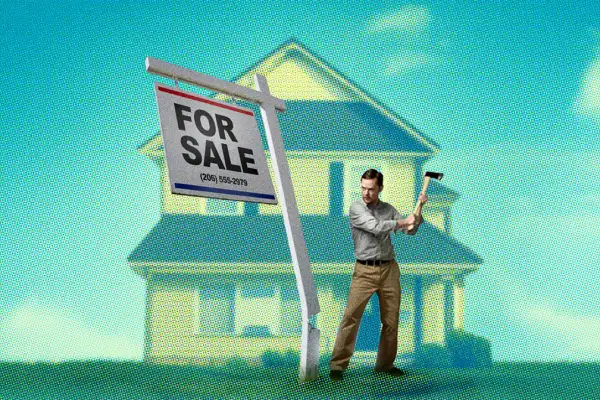A Third of Homeowners Don't Plan on Selling (Like, Ever)

Americans prefer to stay put these days — and their resistance to relocating is contributing to long-standing challenges in the housing market.
In a new survey from Redfin, a real estate brokerage, roughly a third of homeowners say they never, ever plan to sell their current home. More than a quarter say they plan to stay put for at least a decade. Only 15% of homeowners say they intend to sell within the next five years, and a paltry 7% expect to move within the next three years.
This is bad news for the housing market. Given the huge amount of economic activity associated with housing — people spend money on everything from moving-truck rental to new appliances when they move — our predilection for being bumps on a log is a bad sign for the economy overall.
That's because a key part of a healthy housing market is people moving. When folks relocate for a job, an expanding family, better schools or warmer weather, the churn keeps the market healthy. The houses people sell contribute to the amount of available housing inventory for others to buy.
Currently, there’s roughly a four-month supply of homes on the market. Although the available inventory of homes isn’t nearly as abysmal as it was three years ago, when there was a puny one-month supply of available homes on the market, we’re not at the six-month level of inventory real estate pros say reflects a healthy market.
Homeowners’ stated desire to stay put complicates the housing market’s recovery. Homebuilders are responding, but they can’t add housing fast enough to keep up with demand, especially in areas that have seen an influx of new residents.
And it gets even worse for young and growing families: Baby boomers are the generation most likely to express a desire to stay right where they are. Other research has found that large numbers of boomers are holding onto more square footage than they need, bucking the expectation that becoming empty-nesters would prompt them to downsize to smaller houses, condos or apartments and freeing up inventory of larger homes for young and growing families.
An earlier Redfin study found that empty-nester baby boomers own 28% of the country’s stock of big houses (which it defined as those with three or more bedrooms). Millennials, on the other hand, own only 14% of those larger homes, even though the latter demographic arguably has more need for that space.
From the perspective of older Americans, it makes sense: They’re more likely to own their homes outright or have a low mortgage rate they’re reluctant to give up (a phenomenon known as the lock-in effect). They can push off the headache of winnowing down the personal possessions they’ve accumulated over the years and enjoy their space.
But Redfin found that the lock-in effect remains a major factor discouraging moving among homeowners of all ages. The high price of homes is another contributor. Prices have appreciated so much that, for some, even “downsizing” might not mean a smaller monthly payment, especially if they don’t make enough money from the sale of their current home to buy the new one outright, with mortgage rates hovering around 7%.
“The just-because movers — those who just want a bigger or nicer house — are staying put, mostly because it’s so expensive to buy a new house,” Marije Kruythoff, a Redfin Premier agent, said in a release announcing the survey results. “The people who are selling are doing so because they need to.”
More from Money:
Will 2025 Finally Be a Buyer's Market in Housing?
8 Best Mortgage Lenders of 2024
The Typical First Time Homebuyer is Now Almost 40. What Happened?

